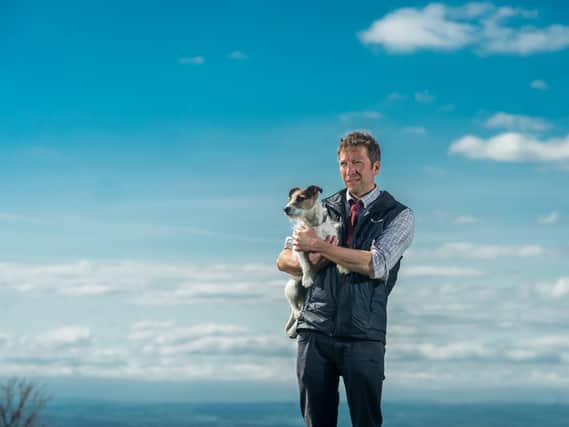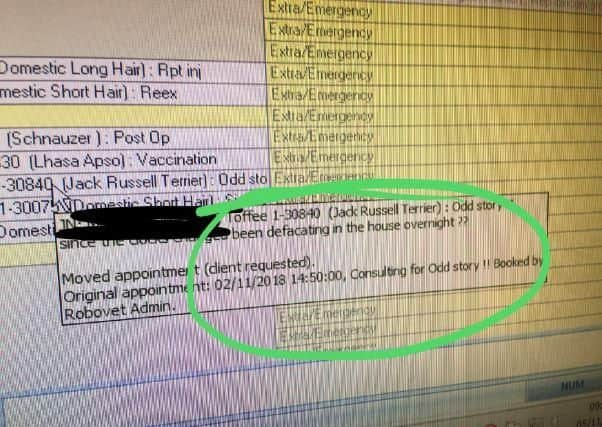Yorkshire vet Julian Norton's backlog of dogs with toilet problems


First was Jess the Labrador. Her stiff hind limb gait, the grey hair around her muzzle and the bluish hue to her eyes all suggested she was elderly, even before I checked her records. She was in for an annual check over and vaccination and my initial questions quickly found focus on her weak bladder.
“Well, she can’t really hold on through the night at the moment and her bed is often wet in the morning,” confessed Jess’s owner, with some concern. It was an inconvenience to both Jess and the humans in the house, but I sensed it was a problem viewed as one of old age, rather than a medical issue.
Advertisement
Hide AdAdvertisement
Hide AdI probed a little further with my questions: was it always during the night? Did she leave wet patches during the day where she had been lying down? Was Jess drinking more than before? Did she need to wee more frequently?


I was trying to establish whether the wet bed was due to urinary incontinence, where urine leaks without any control, or because Jess’ bladder was full for more of the time because her thirst had increased. Alternatively, it could have been the result of a bout of cystitis, which leads to an urgency to pass urine so that the dog just cannot hang on.
The next stage was to palpate Jess’s abdomen, and her bladder. Several years ago, I was called upon to examine a Bassett bitch to see if she was pregnant. This usually involves an ultrasound scan, but I always like to feel with my fingers first. Old fashioned, I know, but fingers attuned to palpation rarely let a physician down. On this particular occasion, before I had chance to feel any puppies, my fingers fell onto a bladder so full of stones, it felt like a bag of marbles!
I surgically removed the offending pebble-like stones and for years they lived in a plastic bag in the fridge of my consulting room, from where I would retrieve them with a flourish, whenever I needed to explain to someone the dangers of bladder disease. Anyhow, Jess had a normal, smooth, non-painful bladder so I was happy stones were not part of her problem. Handing over a kidney dish and a plastic pot, I instructed Jess’s owners to take the elderly dog for a short walk outside to allow the collection of a urine sample.
Advertisement
Hide AdAdvertisement
Hide AdFive minutes later, they were back, carefully balancing the metal dish, half full of slightly sploshing urine. A dip-stick told me the answer – Jess had cystitis. This would be easy to fix with a course of antibiotics.
I scrolled down my appointment list and was surprised to see another dog, Toffee the Jack Russell, with a similar toilet problem. However, Toffee’s overnight issues were of the poo variety.
Our computer system gives a small space next to the name of each patient, for a description of the reason for their visit.
Next to Toffee’s name was a brief but odd summary of his problem, which one I wasn’t sure I would be able to fix: “Odd story. Since the clocks have changed, dog has been defecating in the house overnight?”
Advertisement
Hide AdAdvertisement
Hide AdMaybe the dog’s clock needed to go back to BST? It might offer a simple, though unconventional, cure!
Tonight (Tuesday, November 20) from 8pm, an hour-long special episode of The Yorkshire Vet on Channel 5 documents Julian Norton and veterinary co-star Peter Wright as they attend the Great Yorkshire Show in Harrogate, where cattle farmer Graham Hunt and sheep farmer Mark Elliot competed in its 160th anniversary year. The show also explores the village of Dunsforth as it puts on its annual Country Fair and Dog Show, where Julian opens the fete and judges the dog show.
